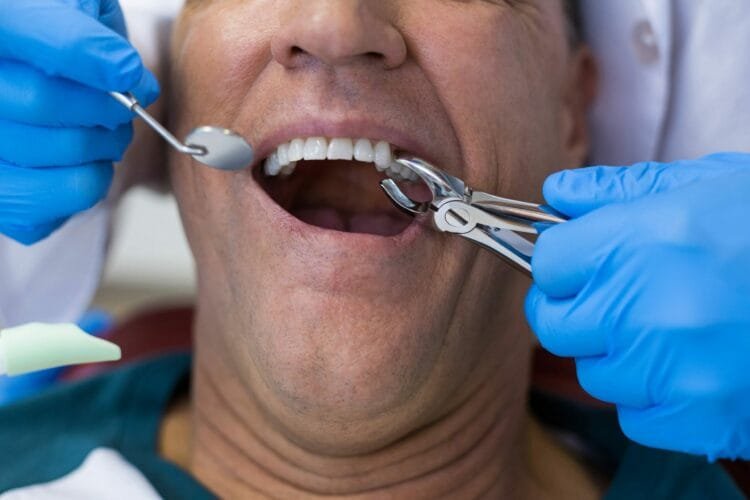Tooth extraction involves the removal of a tooth, and is a relatively common procedure for both adults and children alike. If you have a loose or damaged tooth, tooth infection or decay, gum disease, or crowded teeth, your dentist may recommend that you get your tooth extracted.
Most extractions are relatively simple procedures with no need for any follow-up returns to the clinic – all you have to do is adopt the right aftercare methods once you are home. Here some top tips on how to take care of yourself after a tooth extraction.

The blood clot: an important part of healing
Once you get your tooth removed, a blood clot will form on the site of the extraction that is vital to the healing process. Therefore, one of the most important aspects of tooth extraction aftercare is maintaining the blood clot in the socket where your tooth used to be. Doing so will also help to prevent additional complications such as dry socket.
After an extraction, your dentist in Geelong will pack the extraction site with a gauze pad to control the bleeding and promote clotting. It is important to leave this first piece of gauze unbothered to allow the blood clot to form. After a couple of hours, you can change the gauze as often as necessary.
List of things that you should avoid
To prevent the blood clot from dislodging or being unable to form properly, here are some things that you should avoid doing after your tooth extraction. In the first few hours, do not rinse or gargle anything in your mouth as it could disrupt the new blood clot. Later on, you can brush and floss your teeth as usual, but take care to avoid going over the area where your extracted tooth is.
Any actions that create pressure in the mouth should also be avoided. These include using straws, spitting, blowing your nose or sneezing too hard, and smoking. Moreover, you should hold off on your exercise routine until at least a day or two has passed. Working out can lead to increased bleeding and pain, altogether prolonging the healing process.

Rest up and eat soft foods
Generally, you should expect to be resting for at least a whole day after getting your tooth extracted. For wisdom teeth extraction, the recommended recovery time may be longer than for a regular tooth. Bed rest is important as it can help decrease any swelling, blood, and pain that you may experience. When sleeping, try to use extra pillows to elevate your head, as lying too flat may allow blood to pool in the head and prolong your healing time.
You should also be eating soft foods after your extraction. These are foods that do not require a lot of chewing and will not get trapped in your extraction site. You could opt for soups, yogurt, mashed potatoes, and applesauce, for example.
Try to relieve the pain
There are several things you can do to relieve the pain and discomfort caused by your tooth extraction. You can start out with the cold compress method, which is easily done by placing an ice pack on the affected area. Once a day or so has passed since the extraction, you can also start lightly rinsing your mouth with saltwater once a day to kill bacteria.
If these natural methods are not working, you can opt to take pain relieving medicine instead – over-the-counter painkillers will do a decent job here. For more complex procedures, your dentist may actually recommend you some prescription medication to help with the pain or address any other issues. Make sure to adhere to such prescriptions and complete the full course of treatment if this is the case.
When to see a dentist
The duration and effectiveness of the healing process can vary depending on a range of factors, such as the type of extraction that was done, your age, and how well you have been caring for yourself afterwards. However, you should keep an eye out for any signs that your recovery is not going well, which include prolonged bleeding, worsening pain and swelling, a high fever, nausea, or unusual drainage from your extraction wound. If you experience any of the negative symptoms after an extraction, then it’s time to put the aftercare back into the hands of the professionals and go back to see your dentist.
A tooth extraction completely removes a problematic tooth, and helps to improve your overall dental health. However, knowing how to take care of your teeth after an extraction is equally vital because it helps to protect the extraction site and prevent any complications (such as dry socket) during the healing process. Caring for the blood clot that forms after your extraction is also essential. Keep these handy tips in mind for your next tooth extraction!

